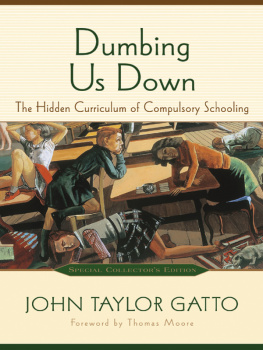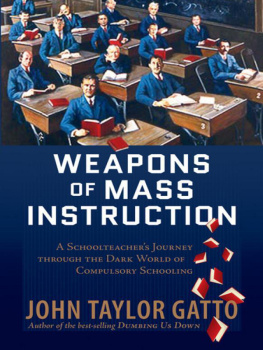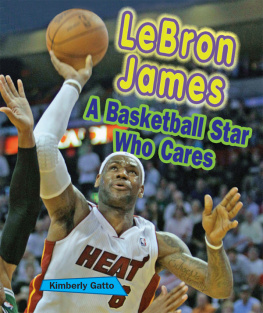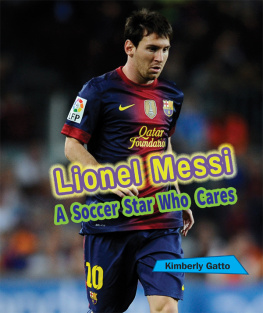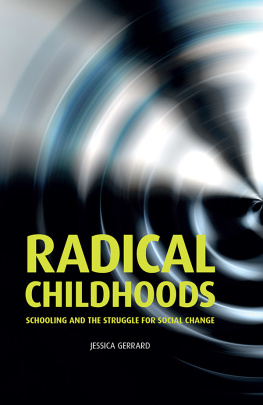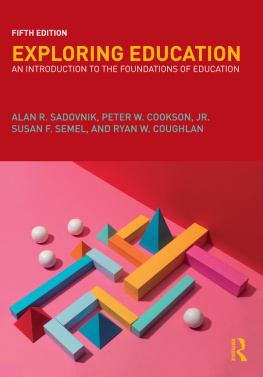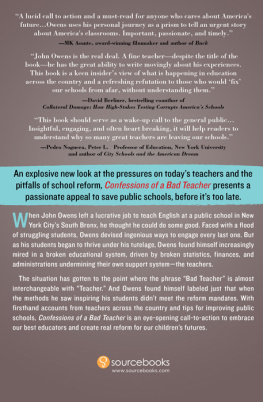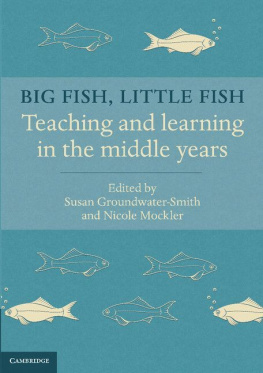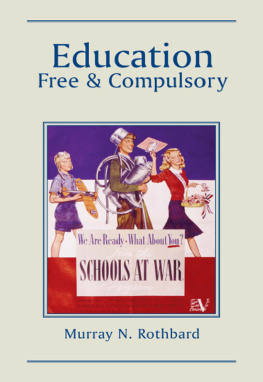Dedication
I dedicate this book to my grandaughter, Gudrun Moss Gunnarsdottir, whose name in Icelandic means the handwriting of God, and to her mother, Briseis. Sparkle and shine in the face of darkness, you two light up the shadows.
Contents
M Y FATHER IS A BORN TEACHER. Hes the kind of man who can spot a potential learner from a distance and go into action. When I was in my forties, he taught me how to bowl at his local bowling alley. In his typical fashion, he said, Pick up the ball and roll it fast toward the center of those pins. Thats all. He knew I could learn this relatively simple skill on my own. He believed in what John Gatto calls self-teaching.
With my fathers blood in me, Ive been a teacher for forty years and have always loved the role. I learned it through apprenticeship with him. At eighty-eight, having retired from teaching plumbing in a trade school, he taught courses in a local school to adults who wanted to learn how to use computers. I hope I still have that kind of passion in my eighties.
But my father has also run up against the hardheaded bureaucracy John Gatto criticizes so explosively. Once, he approached a local school to tell them that, as a former plumbing instructor, he could give a talk to a class of children on where their drinking water comes from, how its cleaned up, and where it goes after its used. The school thanked him for the offer but told him there was no room on their schedule.
I thought the school missed the boat on many levels. My father knows how to talk to kids, and children need some practical learning. Who knows what rich rewards would have come to those children just from being in the presence of a real teacher who loved his material and loves children? And him teaching that class would also have been an act of community. John Gatto makes the important point that a community needs old people and children mixing together.
As a teacher Ive done some things I consider relatively outrageous but nothing as profoundly educational as the efforts of John Gatto. Teaching piano, Ive encouraged children to start by composing their own music, thumping the sides of the instrument for percussive effect if they are so inclined. I used to counsel a college student as she stood on the window well in my office, easing her shyness by remaining behind a curtain. A colleague once came in and saw a pair of shoes sticking out from the drapery and naturally wondered what was going on. The most enjoyable teaching I ever did took place in a classroom that had thick carpeting but no chairs. My thirty students had no textbooks, no syllabus, and no purpose. I picked up on whatever appeared in the room on any particular day and followed it through. Ive never seen so much learning take place, for me and my students, anywhere else.
A physician once said to me that healing always takes place when her back is turned. For me, learning happens when the teacher has other things in mind. I believe this kind of learning can be shaped and even taught, not in schools as we know them, but, as John Gatto says, when a mother and daughter take a trip to talk to a police chief or when some children learn how to put out a newsletter by apprenticing to a publisher. Learning cant take place in pieces of time cut out for the convenience of an institution or in lessons set apart from the world in which students live. We dont learn when life is divided up into sections that have little connection with each other.
I met John Gatto about ten years ago at a small gathering of educators. During the course of a days activities, we were asked to present an object that meant something to us. I remember John grabbing an old briefcase that I think he said had belonged to his father. It had a beautiful patina and evidence everywhere of years of loving use. When I saw John lift that briefcase, my heart skipped. It was so much like my father to value such a thing and to feel the passing of a sensibility from father to son to grandson. A gesture like this reveals that a person is full of soul. My father could never teach English, as John Gatto does, but the two of them share a way of seeing things, a way that is precious beyond measure and always in danger of being lost.
What I love about Johns writing is the lively combination of outrageous irreverence and an omnipresent cool intelligence: the ease with which he refers to school as a jail, as confinement, as a cell; school as a vampire network that should have a stake driven through its heart; school bells as inoculating each child with indifference. As a reader you have no doubt where John stands.
Johns right it wont do to tinker with schools and try to make them better. We have to start from the ground up and reconsider what education is. In my language, Id like to see us educate the soul, and not just the mind. The result would be a person who could be in this world creatively, make good friendships, live in a place he loved, do work that is rewarding, and make a contribution to the community. People say that the word educate means to draw out a persons potential. But I like the duc-part in the middle of it. To be educated is to become a duke, a leader, a person of stature and color, a presence and a character.
Im happy to see this passionate book coming to light once again. I celebrate it. I think it should be read aloud to educators and parents everywhere. I know it asks us to reconsider what we may think of as natural and obvious, but we need original ideas. Crumbling school buildings are telling us how tired they are. Violence in schools is screaming at us to stop doing this thing we call teaching. The sorry level of discourse in America should tell us that the imaginations of our citizens are being cheated by the desperate ineffectiveness of schools. Im grateful to John Gatto for having the gutsy imagination to tell us whats wrong and for giving us some good ideas on how to make it right.
October 2001
(Thomas Moore is the author of Care of the Soul: AGuide for Cultivating Depth and Sacredness in EverydayLife, Soul Mates: Honoring the Mysteries of Love andRelationship, and The Re-Enchantment of Everyday Life.)
A S ITS EDITOR AND FORMER PUBLISHER, I would have liked to flatter myself into believing that John Taylor Gattos Dumbing Us Down was both his first book and his most popular. Unfortunately, and by a long stretch, neither is true. That will come as a surprise to many, who are most familiar with this book in its earlier green-and-black cover incarnation, or with Johns two more recent books The Underground History ofAmerican Education (thats the big, fat one) and ADifferent Kind of Teacher (a blue hardcover).
Johns first work was a set of Monarch Notes. Some of you may remember these from high school, a way to get by in English class without doing the required reading! At any rate, Gattos first book was originally published in 1975, a Monarch Notes guide to Ken Keseys One Flew Over the Cuckoos Nest.
John related to me once after affixing his signature on my copy, with handwriting only a hair more legible than my own (we must both have had Mr. Lewis in the 6th grade and still not recovered from the experience), and scribbling Light up the darkness, keep the faith, and give the bastards the business! into it that the Monarch Notes guide, still in print after 26 years, has actually sold over two million copies, making it by far his most widely read work. But all he ever got out of it was a Burmese cat. If you ever get the opportunity to attend one of his talks, make sure to ask him about it.
Anyway, this Monarch Notes guide the only book of Gattos likely to be read by students undergoing their slow death in what passes for educational institutions these days is an incendiary work. And not only because of its black-and-red cover.
Next page
